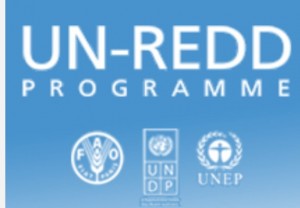UNREDD to work with UNEP
The UNREDD is working on REDD with a number of key institutions who can influence, incentivizing sustainable forestation and working with governments to protect land for future generations.
Deforestation and its partial solution reforestation are areas that now have very powerful partners. The World Bank Group and United Nations UNFCCC are hard at work to regrow forests all over the world.
Knowing full well that while burning of the Amazon constitutes a large part of deforestation, the latest addition to massive forrest degradation is Indonesia. Cutting, burning and planting Palm oil groves is now rapidly becoming a tremendous climate change and carbon problem.
In addition to working directly with Indonesian officials and businesses, the UNFCCC and the World Bank are planting trees around Indonesia to counteract the activities in Indonesia leading to dangerous levels of CO2.
Mark Burrows, Managing Director and Vice Chairman, Global Investment Banking, Credit Suisse, framed the opportunity saying, “The single largest pool of private sector capital is invested in high quality bonds. Given the strained state of public sector finances it is increasingly clear that we need to tap into these large pools of private sector capital.”
Governments offering Green Bonds to help municipalities and urban planners to tie investment into sustainable development bringing together business men, investors, concerned environmentalists, developers and agricultural industrial farmers.
H.E Heru Prasetyo, Head of Indonesia’s REDD+ Agency, remarked, “The biggest challenge facing REDD+ and the Green Economy is business-as-usual.”
Business as usual, at least business as old is not a workable model. Old economic strategies for South America thirty years on show that deforestation has devastated local environments and has proven that used and abused lands do not last long enough and the need for deforesters to move to new growth is a dead end road for Indonesia.
Andrew Mitchell from the Global Canopy Programme stated, “We have to change the fundamental rules of the game – that is tariffs, subsidies and the cost of credit.” Shelagh Whitley from the Overseas Development Institute further emphasized that, “There is an urgent need to look at existing policies that encourage deforestation.”
Getting into the mindset of the forest burning companies is integral to understanding the natural resources being seen as a commodity. But without regards for future development, arable land use, water management and overall planning the Indonesian government permitting the current pace of deforestation is an unhealthy path.
Dharsono Hartono, President and Director of PT Rimba Makmur Utama, shared his perspective as a business operator, saying, “In Indonesia you need a paradigm shift as well as the patience to wait and have your way in fostering conscientious ways of doing business. To change this paradigm there must be better governance and transparency.”
“If you can establish the right systems on a global level then there will also be a larger input when it comes to transfer of resources to Indonesia,” said H.E. Ola Elvestuen, Head of the Parliamentary Committee for Energy and Environment, Kingdom of Norway.





Comments are closed.